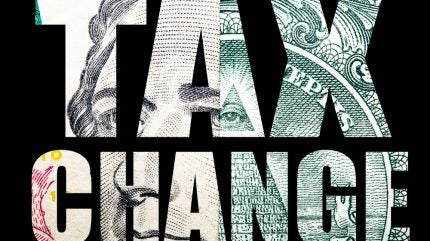
Retailers across the United States have welcomed tax provisions outlined in the Senate GOP’s newly proposed budget bill, describing them as critical steps toward long-term economic stability and investment planning.
The Senate Finance Committee, led by Republican Senator Mike Crapo of Idaho, introduced the bill this week.

Discover B2B Marketing That Performs
Combine business intelligence and editorial excellence to reach engaged professionals across 36 leading media platforms.
Key elements include the permanent extension of several business tax deductions and the preservation of the current corporate tax rate—moves the retail industry says will help protect jobs and encourage domestic investment.
Permanent tax breaks welcomed by industry leaders
Central to the bill are three provisions that industry groups have long supported: the 100% bonus depreciation on equipment purchases, the Section 174 R&D amortisation fix, and the EBITDA-based Section 163(j) interest deduction.
These measures, if passed into law, would allow businesses to deduct more of their capital and research spending from taxable income.

US Tariffs are shifting - will you react or anticipate?
Don’t let policy changes catch you off guard. Stay proactive with real-time data and expert analysis.
By GlobalDataDavid French, Executive Vice President of Government Relations at the National Retail Federation (NRF), said these tax changes “enable retailers to continue to invest in their employees, stores and supply chains, and the communities they serve.”
French also praised the Senate leadership for providing “long-term certainty for American businesses and families.”
Retailers argue that making these tax breaks permanent is particularly beneficial for mid-sized and large firms that rely on frequent reinvestment in logistics, storefront upgrades and digital infrastructure.
Corporate tax rate stability a key concern
The bill maintains the 21% corporate tax rate introduced under the 2017 Tax Cuts and Jobs Act. Retailers had raised concerns over a potential increase once current provisions expire at the end of 2025.
In response, French said the legislation would “protect against the $4 trillion tax hike that businesses face” and help alleviate economic pressures that have built up over recent quarters.
Maintaining the existing rate is seen by many in the sector as essential to ensuring that U.S. retail companies remain competitive globally.
Retailers have also argued that a predictable tax landscape improves their ability to plan hiring, expansion, and innovation efforts—particularly in an environment still recovering from supply chain disruptions and inflation-related challenges.
Impact on investment and job creation
The NRF stated that the Senate bill “strengthens incentives for domestic investment” and would support job creation across the country.
Retailers contribute an estimated $5.3 trillion to annual GDP and support roughly 55 million US jobs, making the sector one of the largest private employers in the economy.
Though some analysts warn that broader implications of the bill—including its effect on federal revenue and long-term deficits—require further scrutiny, the retail industry is calling for quick legislative progress.
“We strongly support measures that maintain the competitive 21% corporate tax rate,” French said. “This bill alleviates some economic headwinds and strengthens incentives for domestic investment.”
As discussions move forward in Congress, industry representatives have signalled they will continue to engage with lawmakers to ensure tax policy supports both businesses and consumers.
Navigate the shifting tariff landscape with real-time data and market-leading analysis. Request a free demo for GlobalData’s Strategic Intelligence here.





